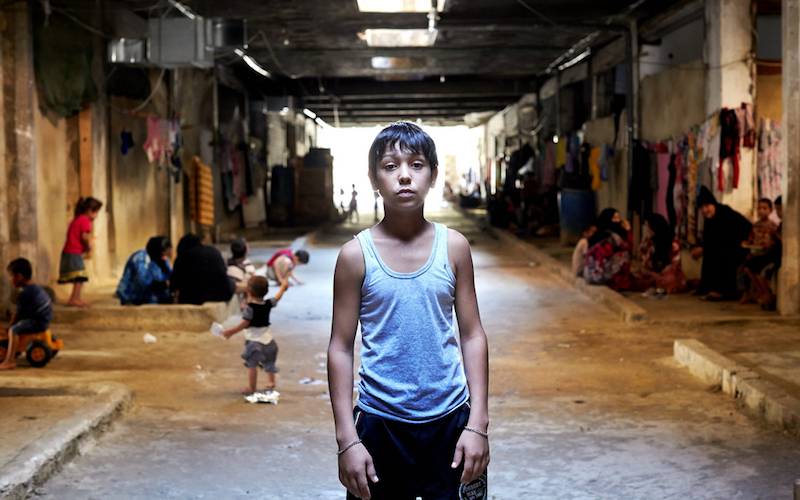
How Refugees Can Return Home
Two years after the ISIS surge, minorities, many of whom fled to other countries seeking security are petrified. They still don’t feel safe even after ISIS’s large retreat.
Hope could blossom for the minorities who want to live in peace and safety in Middle Eastern countries through the enactment of laws enabling the creation of ethnic and religious harmony, guaranteeing the freedom of religion both in doctrine and ethnicity. These laws should protect freedom, dignity, property, equality and the lives of citizens including minorities.
For centuries hundreds of tragic stories have been repeated in the attempts to uproot minorities and ethnic groups. Kurds, Jews, Yazidis, Christians and others have all suffered from genocidal acts, ethnic cleansing and deportation campaigns. We have witnessed another genocidal act by the same haters’ offspring, ISIS, who targeted Yazidis and Christians. Their onslaught started in August 2014. Now minorities in Iraq are facing horrific conditions.
There are some controversial plans for future protection for them to prevent future genocide but none of the propositions can guarantee this. For example, Brett McGurk, the anti-ISIS global coalition envoy, launched the US supported method as a minority protection plan which includes training and arming local community forces to defend themselves. Apparently, this method could assist the communities that are threatened by extremism. However, this solution could foster more wars and create local and international lethal conflicts which would further destabilize a security hiatus.
The ISIS onslaught is targeted mostly at those who do not agree with nor subscribe to their extremism and they have tried to destroy these people by employing inhuman means. The Yazidis are an ethnic religious Kurdish language speaking minority. Their indigenous land is the Kurdistan Region in Iraq and Syria and they are the most traumatized minority as the result of the ISIS attacks.
ISIS captured most parts of the Yazidi Shengal district on August 3, 2014 which led thousands of Yazidis families to flee to Mount Shengal where they were trapped and suffered from lack of water and food. They were killed, abducted, raped and thousands of women were held captive.
Today, more than 3000 Yazidi women and children are still held captive by the Islamic State.
The captured women, children and youths have been subjected to physical and sexual violence, including systematic rape and sex slavery. They’ve been sold in markets in Mosul in Iraq and in Raqqa in Syria. Yazidis girls in Iraq allegedly raped by ISIS fighters have committed suicide by jumping to their death from Mount Shengal, as described by a witness in a statement published by the UN investigation team report. They had been threatened with death if they refused to convert to Islam. ISIS has trained and brainwashed many of the abducted children.
By August 2016, at least 72 mass graves were discovered, reportedly containing corpses of at least 5,200 to over 15,000 victims.
The Canadian resolution to mass migrate Yazidis brought forward other arguments about the imperative to maintain the demographic diversity in the region which has been altered many times by the deportation and displacement of minorities unjustly by extremists and their repeated conquests and their Chauvinist governments. The Jewish deportation is the best and most recent example. In the middle of the last century the Jews lived on land where they were born and where their ancestors had lived. Thousands of them left the Middle Eastern countries to escape oppression and became part of the diaspora.
When I refer to the protection plan for Yazidis, this would apply to all the other minorities. Only international protection and organized mass migration is the solution, The first one, if implemented, is the most adequate solution and a tough response to ISIS and other likeminded groups.
They cannot by their brutal means be allowed to change the demographic map in the Middle East ever again. The second solution may isolate them but will eventually lead to resentment and hatred by other communities. The last option is simply succumbing to ISIS.
The best way to support the Yazidis is by providing many forms of help to them in their own homeland and by supporting the reconstruction of Shangal and the villages first.
Currently, Canada’s decision has been almost aborted because prudent people assess the decision for the mass migration of minorities to be illogical. The Canadian government representative met in Erbil with the Representative of the Yazidis, Kurdistan Regional Government, the United Nations and other relevant organizations to address the taking of the survivors of ISIS captivity and their families who require medical and psychological therapy. The German Government accepted more than 1000 during the last year for therapy treatment.
The hardest work which includes fixing Shengal, providing protection and the resettlement of the Yazidis lies ahead. The International Community needs to address solving these issues. Without doing so the region will remain dangerous for minorities and another monster like ISIS could emerge in time.
Losing any of the components of a community in the region leads to the loss of many things. Many people here still talk about the Jewish community where a large number lived in the different Middle Eastern countries including Iraq and Kurdistan. They were a part of the society. My mother heard her grandma describe the Jewish community as very talented, skilled and productive. She said that most of the goldsmiths of their town (Koya- lies 75km southeast of Erbil) were Jews, and they were forced to leave without anything. Some concealed their pieces of golds inside bulgar and meat balls because the government didn’t allow them to take their property with them except clothes and some food. Their other property was confiscated.
According to historical sources, the Yazidis have survived 74 different genocidal attacks. They still complain about discrimination and a lack of rights. Three steps need to be taken: restorative justice, developing laws to guarantee rights and providing protection.
Restorative justice should be accomplished by bringing ISIS members into international and local tribunals. Those who supported terror should be punished along with their accomplices and they should be excluded from cities like Shengal and Mosul. After restoring the afflicted areas, the sources of terror should be uprooted. Most of the Yazidis stated that their Sunni Arab neighbors and friends, have suddenly participated in women rape crimes and women and children abdication instead of protecting them. However, those Arabs were not the original residents of Shengal but Saddam -the Iraqi former dictator -brought them to the city to create demographic changes. Tolerance and clemency in these cases have no place.
And, a new laws should be developed and endorsed which make change in giving the sense of equality to minorities and guarantee their rights.
Also, providing protection for them is one of the most important elements of stabilization. They should feel safe upon their return. Protection should guarantee peace. It should address peace from all of the aspects. This protection should have international and local elements inside the process and should make the minorities not afraid of what happened before under ISIS.
All the components of Middle Eastern communities not subscribed to terror are threatened by terror groups, minorities should know that mass migration is not an adequate solution, it is the diversity killer.
In a unique step in the Middle East, the Kurdistan Region –the Iraq parliament issued resolution number 5 in 2015. This resolution containing important terms that any group (even if there is only one person) may announce their religion and it would be legally protected.
The second term is for those persons whose property or any belongings are confiscated because of religion can get it back if they can submit a legal document showing that they are the real owner. The courts are required to act. The Kurdistan Lawyers Syndicate has officially volunteered to defend these cases.
Accordingly, now there are formal representatives of 8 religions in the Kurdistan ministry of religious affairs: Muslim, Christian, Baha’i, Zoroastrian, Yezidi, Kaka’i, Sabean Mandaean, and Jewish. During the last few months the first Zoroastrian temple opened in Kurdistan and Jews commemorated the 71th anniversary of the mass deportation of Jews. After the liberation of Christian areas from ISIS the pictures of Peshmarga forces when they set back up very large Crosses in those areas overwhelmed the International Media .
Still many people are unaware of this law which should be publicized in parallel with bringing back justice to Yazidis, Christians and other religious and ethnic minorities who ISIS attacked in a very brutal way. The international community should be an enthusiastic supporter for protecting diversity in the region.

